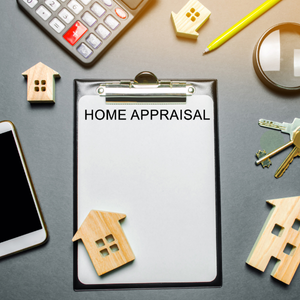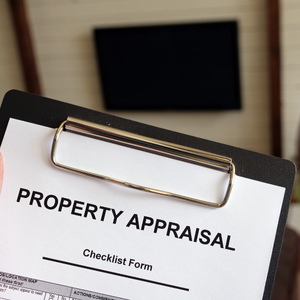
Like many major American cities, Raleigh, NC, is no stranger to a booming real estate market. Selling a home in Raleigh is no simple feat and begins with a proper assessment. Appraisals, being a cornerstone of home valuation, require a deep understanding of pricing patterns within neighborhood and city-center zones in addition to the ledger of amenities the property boasts. Finding the right buyer requires a clear grasp of the time duration, spanning from the moment a deal is struck to the day the transfer of ownership is legally sanctioned. How does one fulfill such expectations and still ‘manage’ the experience? Cardinal Home Buyers provides homeowners with the support and guidance needed to simplify this process and sell with confidence. This single guide simplifies the hassle for home sellers in Raleigh, NC. Moving to a different city or bordering state, knowing the Raleigh home-selling procedure will always help eliminate needless waiting periods. There is no doubt that real estate transactions will only help to advance your standing and market value.
Key Highlights
- Appraisals are crucial for securing mortgages and setting real estate closing timelines in Raleigh’s dynamic market.
- Physical condition, location, and comparable sales are key factors impacting a property’s appraised value.
- The typical appraisal timeline ranges from days to weeks, influenced by appraiser availability and market demand.
- Addressing discrepancies between appraised value and sale price is critical to avoid closing delays.
- Proactive preparation and communication can minimize delays, ensuring a smooth transition from appraisal to closing.
Understanding the Appraisal Process in Raleigh, NC

The appraisal process should be understood by individuals looking to buy or sell a home in Raleigh, NC. They determine in part the appraisal’s ‘return value’ and the buyer’s ‘financing capability’ as well as the seller’s contentment and ‘agreed price’ confidence. Sellers enjoy having their home’s value professionally and monetarily confirmed, while for lenders, it’s a necessity in order to determine the value of the house in question and disburse a loan for it.
The assessment or appraisal involves a licensed appraisal professional who examines the ‘return value’ of the home in terms of his or her dollars, the home’s condition, the home’s size, the home’s location, the value of home upgrades, and the home’s comparables in the area. Knowing how any particular market functions, the Raleigh market price of any product could change instantly. Knowing the basics of home appraisal enables buyers and sellers to make more confident decisions.
A home appraisal refers to a professional assessment of a property’s value that is executed within transactions of real estate. Provided that the property’s worth is also important to buyers and sellers, the appraisal serves to make sure that the value of the loan is in alignment with the property’s marketplace value. The difference between an appraisal and a home inspection appraisal is a real estate condition appraisal. This type of appraisal focuses on estimating value as opposed to condition, taking into account the home’s size, condition, location, and sales of the neighborhood. Moreover, home appraisers also look into real estate tax documents, past appraisals, and visual improvements to come to a reasonable value.
An appraisal is essential in determining a mortgage, as well as in negotiating the terms of the transaction. The more buyers and sellers understand the appraisal process, the more they are able to prepare for the impact it will have on financing, and sellers for setting reasonable expectations. Being educated on the appraisal process, in addition to having the documents readily available, will eliminate delays in Raleigh’s competitive market. The transaction will be to the satisfaction of all parties involved, as having the necessary information helps to manage the challenges faced.
Key Factors Appraisers Consider
In the Raleigh region, unlike any appraisers, they must ascertain and note the condition of critical systems: plumbing, roofing, electrical, and HVAC components, and even the structural foundation of the house! Thus, the value of the home tends to increase the more updated the systems are and the better-maintained the home is. Geographical area is more than relevant in this case; however, distance to schools, parks, shopping areas, and even to Downtown Raleigh increases value tremendously. Homes in more affluent areas, and, funny enough, in the more prestigious districts, tend to get appraised much more than homes down the road in the more rural areas.
To arrive at a value, appraisers also have to take into account ‘relevant market data’. On top of that, they must analyze relevant market data; in this case, they must analyze the buying and selling of homes that are the same size, age, and have the same characteristics in the area. Market conditions further influence value, with seller’s markets typically driving appraisals higher due to strong demand. Sellers and buyers both have much to benefit from such knowledge; buyers have a basis for negotiation, and the seller’s home is appraised much more, regardless of the conditions, if the house is located in the selling area. Thus, sellers are greatly pleased, and this trivial knowledge greatly affects negotiation. Further, sellers are more in control, pacing themselves for a more desirable outcome. In this regard, they are more likely to win the negotiation.
How Long is the Typical Appraisal Timeline in Raleigh NC?
Within the Raleigh appraisal district, the completion of appraisals usually takes at most two weeks, though it may take longer or shorter depending on the current state of the market, along with the lender’s stipulations. Certain circumstances, such as specialized traits of the property or wanting exceedingly thorough reviews, may take longer, particularly in cases of complicated properties. However, in most cases, appraisals that are needed to qualify for mortgage loans are done much quickly. The advances in technology allow for the entire process to be done much quickly. Naturally, these also include closing, which in most cases is delayed, but can be done much faster if anticipated. The timeframes suit both buyers and sellers in this case.
Appraisers should be aware that unnecessary barriers have to be removed, thus taking time and effort in the process of evaluation and closing the distance to the property. The barriers in this case can range anywhere, from private property rights to internal documents in a specialized private firm. As it is demonstrated here, both buyers and sellers have access to removing the more complicated barriers and creating supports to streamline the process for themselves within the Raleigh Appraisal market.
Average Time for Completing an Appraisal
In Raleigh, completing an appraisal typically takes anywhere from several days to weeks based on appraiser availability, demand, and workload, and the property’s intricacies. During the appraisal seasons, buyers and sellers experience longer lead times, which in some cases can impact the closing dates. Regardless of the demand, appraisals are necessary in most mortgage cases; thus, being aware of the demand can assist in strategizing to minimize delays in the purchasing of a property.
Completing the appraisal requires an inspection of the property, an examination of relevant comparable transactions, and the construction of a report to the bank. These steps take time, especially when the bank has a follow-up question. Both sellers and buyers can quicken the process by being responsive and ensuring the property in question is accessible. Providing all documents and keeping track with the bank lender also aids the cause. Knowing the average time to appraise a property helps ease the tension, while also ensuring the smooth flow of transactions in Raleigh.
| Step in Appraisal Process | Average Time Frame | Influencing Factors | Potential Delays |
|---|---|---|---|
| Order and Assign Appraisal | 1-3 days | Availability of appraisers, workload of lenders | High demand periods, lender backlogs |
| Property Inspection | 3-7 days | Scheduling availability, appraiser’s workload | Property access issues, peak seasons |
| Research and Analysis | 3-5 days | Complexity of the property, local market conditions | Unusual property features, lack of comparables |
| Report Compilation | 2-3 days | Appraiser’s efficiency, clarity of data | Data discrepancies, last-minute changes |
| Step in the Appraisal Process | 1-2 days | Accuracy of report, communication with lender | Required revisions, lender approval delays |
This table breaks down the appraisal timeline, highlighting critical steps, average durations, and factors affecting the overall process.
What Happens After the Appraisal in Raleigh NC?
Here in Raleigh, the length of the appraisal process will range from a few days to a few weeks, and will vary depending on the appraiser’s schedule, property intricacies, and the current demand on the market. The process is likely to get longer during peak season for real estate, which will, in turn, impact the closing dates. Both buyers and sellers appreciate the need for proper planning in order to avoid last minute surprises from the lenders. Most mortgages will come with an appraisal.
An appraisal requires a physical inspection of the property, like in the case of the buyers, an inspection of the property, and then the creation of a summary report for the lender. If the lenders need more explanation, the process will get delayed, but proper measures taken from the outset can help. The sellers need to make the property ready and accessible, and also might need to give information on repairs made on the property. The buyers, in turn, need to always keep in touch with the lender. All these actions will make the entire process of real estate transactions in Raleigh simpler, especially the appraisal process.
Steps Following a Satisfactory Appraisal

After an appraisal that meets certain appraisal criteria, the lender reviews it to ascertain the value of the property to determine whether it supports the mortgage amount requested by the buyer. The lender advances with processing the mortgage if the appraisal value matches the sale price. In this case, the lender will prepare the loan documents, set the final terms of the loan, such as interest rate and other loan conditions, and give final approval if all documents are in order. At this stage, the lender appraisal and the lender’s financial qualifications are already checked; therefore, the buyer and seller, as well as their respective agents, can close the deal with confidence.
The next steps involve the completion of all documents required for the closing of the deal, as well as the settlement of all other matters, such as repairs, debts related to the property, and other outstanding issues. The closing attorney or the escrow officer in charge of the deal manages the documents and the two parties. After this, the two parties will come to an agreement on a closing date. Buyers and sellers on that date will review and sign all required documents with the closing attorney, and all funds will be disbursed, which results in the ownership being transferred. In the case of the buyers in Raleigh, this is the final step in the process of buying a home, as it guarantees, along with the rest of the steps, a seamless transition to the new property.
Handling Discrepancies in Appraisal Value in Raleigh NC
Gaps between the appraised value and the obtained purchase price are typical in real estate and may hold up the closing process. If the appraisal value is low, buyers will find it nearly impossible—if not impossible—to obtain the entire mortgage, as lenders do not approve loans over the appraised value. In most situations, this results in the sale price being renegotiated, the buyer securing additional money to fill the deficiency, or both parties inspecting the appraisal in detail to find discrepancies. Errors in appraisal review or completion, lack of appraisal features, comparable sales, and overlooking of certain measurements may necessitate a re-evaluation of the appraisal and a fresh appraisal process, or contesting the assessment with the lender as a challenge.
If the appraisal is completed successfully, both buyers and sellers have to determine the next course of action. Buyers can increase their down payment, sellers can reduce the price, give concessions, or even hold out for another buyer. In addition to real estate in Raleigh, paying attention to high-level movements in the market and timing does offer possibilities. Keeping the communication free flowing, a high level of creativity and flexibility in case their borderline targets change are not normal, are required to resolve the appraisal issue and keep the contract alive. By implementing these tactics, buyers and sellers will have no issues meeting the closing targets.
The Impact of Appraisal on the Closing Timeline
In an area like Raleigh, NC, which has a competitive market, appraisals impact the closing timeframe. While working with lenders, an appraisal is needed to verify the value of the property which must be completed before the closing of the mortgage. If any steps are delayed, the closing date will also be pushed back. An increasingly complex property, a missing document, or simple appraiser availability are all factors that delay the closing. Having an understanding of the property helps the buyers and sellers plan and avoid delays.
In order to avoid delays, all parties should make the property available, have a point of contact, and communicate with lenders and the appraiser. Faster appraisal processes will occur when buyers and sellers are proactive. An understanding of appraisals will allow the buyers and sellers to close as efficiently as possible. Alternatively, you can sell your home for cash in Knightdale or nearby cities, bypassing lengthy appraisal processes and making the transaction faster and simpler.
How Appraisals Affect Real Estate Closing Dates in Raleigh NC
Within Raleigh’s housing market, appraisals can influence the target date for closing more than in other parts of the country. Delays on appraisals have pushed the closing date, which creates adverse cash flow for the lender. However, streamlined processes eliminate the closing delays, allowing the lender to closer the mortgage documents. Delays cause the other parties to the transaction to have to renegotiate for better terms, requiring more sophisticated thinking.
Moving forward, both the buyers and sellers must have a strategy for how to counteract, or at a minimum, lessen the adverse effects of the appraisal. Appraisers become the masters of swift transactions when communication is streamlined, documentation is not fully filled, and predictive solutions to issues with devises are implemented. Sellers also have a strategy when the repairs are the first things accomplished, sensible pricing is matched, and the dwelling is inspection-ready. When closing is inevitable, the appraisal, dovetailed by proper planning, is one of the benchmarks to a smooth transaction.
Minimizing Delays in the Closing Process
Timely completion of the closing process is vital for avoiding any appraisal-related problems. In the case of Raleigh’s competitive real estate market, being proactive is the best option. Home sellers may deal with visible repairs on their homes and paperwork related to any upgrades or improvements beforehand, while Buyers may turn to their lenders to ascertain that all of the required paperwork is finished in the early stages of the transaction. Both sides understanding the current market condition minimize surprises during an appraisal.
Frequent communication with the lender will prevent any lapses in the closing process. Sellers and their agents should focus on realistic pricing so that budget goals may be set early in the deal. If appraisals are set as soon as possible, and any delays are added for busy periods, tension and anxiety accompanying a lack of time may be alleviated. Along with e-signatures and digital sharing of documents, the process is expedited. Preparation, communication, and flexibility can help Raleigh buyers and sellers improve the appraisal and closing sequence of their transaction.
Preparing Your Home for a Quick Appraisal in Raleigh NC
It is crucial for sellers in Raleigh to prepare their homes for a quick appraisal. It not only keeps the selling process on course, but also saves time. Focused appraisers value properties, although not as much as selling. A prepared home is impressive and well-maintained. Minor home appraisals, repairs, mowing the yard, and arranging every inch of the home for access are much appreciated. It saves your time, and it also saves on the cost of appraisers. Upgraded docs having favorable recent changes with a new roof or updated systems raise value and appraisal cost as well. It is also favorable for the appraisers.
Knowing the condition of the home, location, and recent comparables on sale helps sellers prepare. Sellers have to prepare more to showcase these tailored value buys. Sellers have to focus on the unique features of the home more and have to provide supporting documents to the appraiser to have the home appraised and provide the best value. Not only does it reduce the appraisal time frame, but it also increases the chances of having the value of homes of a similar nature for sale. A few delays and smooth sailing to closing is valuable to sellers, but another option is to sell your home for cash in Raleigh or nearby cities, which can bypass appraisals altogether and make the process even faster.
Essential Tips for Home Sellers

In Raleigh, homeowners can accelerate the appraisal process by concentrating on preparation and presentation. Work on curb appeal, since the outside is the first thing that the appraiser sees. A well-maintained lawn, clear driveways, and well-tended gardens suggest that the property is well taken care of. From the inside, the spaces should also be tidy and uncluttered, allowing the appraiser to see and appreciate the home’s features without distractions. Showing the home as it’s well-maintained and move-in ready also makes a big difference. This can be done by performing minor repairs of leaky taps, squeaky doors, or cracked tiles.
Complete records showing the key systems that have been upgraded and recently improved, along with the HVAC, plumbing, or electrical systems, can also have a positive influence on an appraisal. Even simple updates, such as modern appliances and energy-efficient windows, can be valuable. In the neighborhood, sellers should collect and submit comparable sale documents of the appraised properties along with the renovation documents. Knowledge about Raleigh’s local market, such as school and park locations or proximity to downtown, further highlights the property’s strengths. In this way, sellers can effectively ‘dress’ the property for an appraisal. This makes the process smoother and more favorable, thus speeding up and increasing the odds of a successful sale.
It is vital for real estate transactions to maneuver through the appraisal process in Raleigh, NC, successfully. The closing process takes place 30 to 45 days after the appraisal has determined the value of the home, as long as all the parties involved meet the other conditions. In order to make your life easier, work with Raleigh real estate professionals who can help you navigate the process. This way, you will be able to close without any issue and stay on your home-selling schedule. For information on how to close a real estate transaction in a timely manner, refer to our guide.
Do you need to sell your home but wondering how long after an appraisal can you close? The timeline can vary, but with Cardinal Home Buyers, you don’t have to wait through the typical delays. We help you sell quickly, avoid costly repairs, and enjoy a hassle-free process. We offer fair cash offers, handle all the details, and make the transaction seamless. Ready to sell or have questions? Contact us at (919) 609-5173 for a no-obligation offer. Get started today!
Helpful Raleigh Blog Articles
- Inheriting an Inherited House with Sibling in Raleigh, NC
- What Is the Average Cost to Sell a House in Raleigh, NC?
- How Long After an Appraisal Can You Close in Raleigh, NC?
- Selling a House with Foundation Issues in Raleigh, NC
- Can You Put a Lien on a House in Raleigh, NC
- Selling a Home that Needs Repairs in Raleigh, NC
- Can I Sell My House Below Market Value in Raleigh, NC
- Is Raleigh, NC Safe?
- Raleigh, NC Neighborhood Map
- Raleigh, NC Property Tax Rate
- Closing Costs Calculator in Raleigh, NC
- Understanding Expenses in Raleigh, NC
- Discover 40 Free Things to Do in Raleigh, NC
- Tips for Selling Your Raleigh Investment Property in NC

